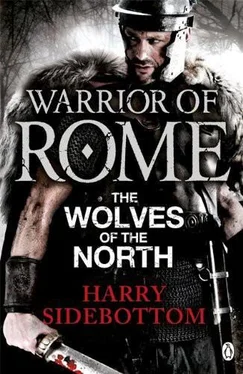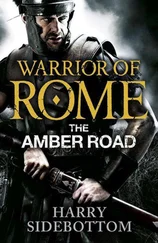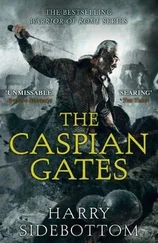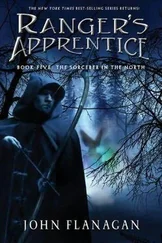Harry Sidebottom - The Wolves of the North
Здесь есть возможность читать онлайн «Harry Sidebottom - The Wolves of the North» весь текст электронной книги совершенно бесплатно (целиком полную версию без сокращений). В некоторых случаях можно слушать аудио, скачать через торрент в формате fb2 и присутствует краткое содержание. Жанр: Исторические приключения, на английском языке. Описание произведения, (предисловие) а так же отзывы посетителей доступны на портале библиотеки ЛибКат.
- Название:The Wolves of the North
- Автор:
- Жанр:
- Год:неизвестен
- ISBN:нет данных
- Рейтинг книги:3 / 5. Голосов: 1
-
Избранное:Добавить в избранное
- Отзывы:
-
Ваша оценка:
- 60
- 1
- 2
- 3
- 4
- 5
The Wolves of the North: краткое содержание, описание и аннотация
Предлагаем к чтению аннотацию, описание, краткое содержание или предисловие (зависит от того, что написал сам автор книги «The Wolves of the North»). Если вы не нашли необходимую информацию о книге — напишите в комментариях, мы постараемся отыскать её.
The Wolves of the North — читать онлайн бесплатно полную книгу (весь текст) целиком
Ниже представлен текст книги, разбитый по страницам. Система сохранения места последней прочитанной страницы, позволяет с удобством читать онлайн бесплатно книгу «The Wolves of the North», без необходимости каждый раз заново искать на чём Вы остановились. Поставьте закладку, и сможете в любой момент перейти на страницу, на которой закончили чтение.
Интервал:
Закладка:
‘You do not like them any more than anyone else,’ Maximus said. ‘The other year in Cilicia, when we captured the Sassanid king’s harem, you killed two of Shapur’s eunuchs out of hand, just because they were crying and it annoyed you. What was it you said? Something like, We never cared for their sort in the north.’
Ballista suppressed a flash of anger. He had been out of his mind then, maddened with grief. He had been convinced his wife and sons were dead. But he was not going to voice that excuse; did not want to be reminded of that time at all. Fuck Maximus for bringing it up.
‘Look at the eunuch’s head; the killer cleaned his blade on his hair,’ the gudja said in heavily accented Greek.
It was true. There was much blood from the wound at Mastabates’ throat and the various mutilations, but none of it seemed to account for the clotted hair. From his youth at the imperial court, half-remembered lines of poetry came into Ballista’s mind. He recited hesitantly; losing the metre, missing words altogether.
Think… is it likely the dead in the tomb will take these honours well, who mercilessly slew him… armpitted him, and for ablution wiped off the bloodstains on his head…
‘What is that?’ Maximus asked.
‘Lines from Sophocles’ Electra. Clytemnestra tried to avoid the blood guilt of killing her husband, Agamemnon, by wiping the murder weapon in his hair. On his own head be it. It was his fault for sacrificing their daughter, Iphigenia. Mastabates mentioned the lines when we were looking at the body of Castricius’s slave. Now, Mastabates is the dead one.’
Ballista paused, thinking.
No one else spoke.
‘Mastabates said he was sure there was something more about mutilation, not in tragedy but in epic.’ Ballista looked at Castricius and Hippothous.
Neither the enthusiast for epic poetry nor the self-styled man of Hellenic high culture reacted.
Suddenly, the weight of the earth above was very heavy on Ballista. He was tired, hung over, oppressed. He had to get out of this tomb. Abruptly, he turned to Hordeonius. ‘Organize the burial,’ he said.
As he neared the surface, Ballista could hear the wailing of the other eunuch, Amantius.
The tunnel was almost pitch dark. Men were screaming. The sounds of fighting were coming nearer. The flickering of distant torches gave it the look of Hell.
Mamurra was down, wounded. He was shouting something. Ballista could not hear. He felt the crushing weight of the earth above them. It was hard to breathe. He was choking. Far away behind him was the faint light of the outside world, the light of safety.
Mamurra shouted again. His hand reached out to Ballista. The Persians were getting closer. Earth drifted down on to Ballista’s head, like flour on a sacrificial animal. He felt as much as heard the thunk, thunk of axes biting into the pit props. He had to get out. He took a last look at Mamurra. His friend’s eyes were wild. Ballista turned and ran.
He stumbled out into the light…
The dream scrambled and retreated.
Ballista lay in the darkness. Poor old Mamurra. Poor square-headed old bastard. A man you could trust. A man who had trusted him.
Ballista had not been in the tunnel at Arete. But he had given the order. What in Hell else could he have done? Spare one and let the others die? He had given the order, and left his friend entombed in the dark for ever.
The Steppe was like nothing Calgacus had ever seen. It was another world. The ox-wagons had rumbled east for four days since the discovery of Mastabates’ corpse. They must have covered forty miles. But it could have been four hundred, or no distance at all. The Steppe gave no indication of having any beginning or end.
Many found it monotonous. But Calgacus was comfortable with the sameness. Although there were occasional bursts of rain — it was still May — most of the time, the sun shone. Calgacus enjoyed each day’s travel. The plain spread flat in all directions. There were spring flowers in the grasses: blue, lilac and yellow. There were milkwort and wild hemp, and tall candelabras of mullein flowers. And everywhere was grey wormwood; everywhere the bitter aroma of wormwood.
Not all was monotony. Groups of rounded barrows of the dead came and went. Then, abruptly, the convoy would come upon small watercourses. Hidden in their own declivities, the streams sparkled, refreshing the eye. Snipe flew up, and there were chub, tench and pike, even crayfish, to be caught. Mice and larger rodents dived into holes and burrows. Maximus claimed to have seen all sorts of other animals — wild asses and goats, a vixen playing with her cubs — but Calgacus’s old eyes were not sharp enough to catch them. The Hibernian was probably lying.
The days were one thing, but the nights were another. In the day, unless you rode away from the din of the caravan, you could not hear the Steppe singing. But, at night, when men and beasts slept, there was no escaping it. The wind — and there was almost always wind — sighed through the fresh spring grasses. The sibilant whistling and whispering insinuated thoughts of regret and loss, instilled a feeling of trepidation. Nightingales and the call of owls added to the melancholy. On those nights when there were no clouds, the moon was bright enough to illuminate every blade of grass. The unfathomable immensity of the sky made Calgacus uneasily aware of the fleeting insignificance of man. He thought of Rebecca and the boy Simon, of his own hopes of comfort and domesticity. If he survived this — and in the face of such alien vastness it seemed somehow implausible — he would marry her. Ballista might hanker for a return to the north, at least in half his heart, but Calgacus wanted none of it. He had been a slave there. In the south, he had freedom. He wanted nothing more than to live out his days under the hot Sicilian sun, a son of his own playing at his feet.
On the fifth morning, Calgacus rode with Ballista and Maximus away from the others.
‘So, would now be a good time for you to be telling me how you and the longheads are so well informed about each other?’ Maximus asked Ballista.
‘You might as well know,’ Ballista said. ‘Once, the Heruli lived in the north, on the island of Scadinavia, across the Suebian sea, north-east from my people. In my grandfather’s time, the Heruli killed their king, for no better reason than they did not want to be ruled by him any more.’ Ballista smiled.
‘We Germans do not exalt our rulers like the Persians or Romans, but among the Heruli their kings enjoyed practically no advantage over any other warrior; all claimed the right to sit with him, eat with him, insult him without restraint.’ Ballista smiled again.
A brace of partridge flew up, their whirring wings making the horses skitter. Ballista soothed his mount, and took up the story once more.
‘They chose a new king, Sunildus. He was more to their taste. They were numerous and warlike. They soon conquered most of the thirteen neighbouring tribes on Scadinavia. Both the powerful Gauti and the savage Scrithiphini fell under their sway. Their king tried to call a halt, but they reviled him, called him effeminate, a coward. Their natural avarice was aroused. He did not dare try to curb them. They crossed the sea. The Eutes were subjected. The Heruli moved south, raided far and wide. The terrible things they did roused the other tribes against them: the Varini, Farodini, Reudigni, Saxones, Aviones and the Angles.’
Ballista stopped. Calgacus was half listening; he knew the tale of old.
‘And?’ Maximus prompted.
‘And, my grandfather had been away when the Heruli came. They raped and killed his first wife, their two daughters. It was Starkad who formed the tribes into alliance against the Heruli, persuaded their subjects to revolt. He killed their king Sunildus with his own hands. The Heruli were driven from their lands. Sunildus’s son, Visandus, led them into exile. Many of the Eutes went with them. Now they are here.’
Читать дальшеИнтервал:
Закладка:
Похожие книги на «The Wolves of the North»
Представляем Вашему вниманию похожие книги на «The Wolves of the North» списком для выбора. Мы отобрали схожую по названию и смыслу литературу в надежде предоставить читателям больше вариантов отыскать новые, интересные, ещё непрочитанные произведения.
Обсуждение, отзывы о книге «The Wolves of the North» и просто собственные мнения читателей. Оставьте ваши комментарии, напишите, что Вы думаете о произведении, его смысле или главных героях. Укажите что конкретно понравилось, а что нет, и почему Вы так считаете.












